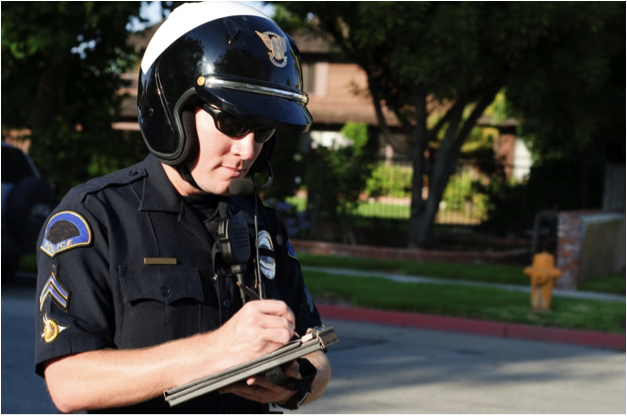
When you are pulled over by a law enforcement officer, there may be numerous questions running through your head. Why am I being stopped? What do I say to the officer? How much is this going to cost?
Answers to Most Commonly Asked Questions About Tickets
After the officer sends you on your way with a traffic ticket, you will probably have even more questions about what to do next. So, here are the answers to some of the most commonly asked questions about California traffic tickets.
Q: How many points are put on my driver’s license if I get a traffic ticket?
A: For each moving violation, you will get one point on your license. However, you will receive two points if the infraction is a DUI, reckless driving, hit-and-run, or driving on a revoked or suspended license conviction. The state of California can also suspend your driver’s license if you receive:
- • 4 points within 12 months
- • 6 points within 24 months
- • 8 points within 36 months
Q: How long do points stay on my driving record?
A: In most cases, any minor (one-point) infractions will be expunged from your record after three years. However, serious (two-point) infractions will remain on your record for ten years, as will failing to appear in court to face a DUI charge. The failure to appear in court for any other traffic violation stays on your record for five years.
Q: How do I know how many points are on my record?
A: You can always request a copy of your driving record to determine how many points are currently on your license, however the Department of Motor Vehicles will notify you by mail when you are halfway to having your license revoked, and when you are a single point away from a license revocation. Obviously, they will undoubtedly let you know if and when your license is actually revoked.
Q: Is there any way that I can clear points off of my license other than simply waiting for three years?
A: The answer is yes, if your traffic ticket is for a standard moving violation. After enrolling in and completing a California-approved traffic school course, the ticket will be dismissed and the point will not appear on your record. However, this option does not apply to more serious offenses like DUI or hit-and-run, nor is it available to people whose driver’s license is not in good standing.
Q: Do out of state tickets appear on my driving record?
A: Unfortunately, yes. California is affiliated with the Driver’s License Compact, which acts as a consortium of states who share information on traffic infractions. As a result, if you get a traffic ticket in any other state that is a DLC member, the infraction will be sent to the California DMV and the appropriate points will be placed on your record. Currently, only Georgia, Massachusetts, Michigan, Tennessee, and Wisconsin are not member states in the DLC, although it is still possible that infractions in those states could be discovered in California.
Q: What is a “Fix-It” ticket?
A: This type of infraction gives you the option of either paying the fine/penalty, or correcting the problem for which you were ticketed. Broken taillights, missing proof of insurance, and similar infractions frequently are written up as fix-it tickets. To address the infraction, you must get an authorized individual, such as a court clerk, police officer, or DMV agent, to validate that you have addressed the problem in accordance with the law.
Q: Can I ask for a court trial to adjudicate my traffic ticket?
A: Yes, that is your right, but in most cases, you will still have to pay the fine in advance because this payment acts as “bail” for your trial. If you win your case, the money is refunded to you. If you lose, not only does the state keep the funds, but you also may have to pay court costs, and you could possibly be jailed. For details on seeking a trial for your ticket, click here.
Q: Will points on my license raise my auto insurance premiums?
A: Quite possibly. You can always change insurance companies if you can find a lower rate, though. Auto Insurance Specialists has access to dozens of California insurers, many of whom either do not always raise rates for points on a record or cater to drivers who have amassed points on their license. Therefore, it may be in your best interest to contact AIS Insurance if you get a traffic ticket.
This content is offered for educational purposes only and does not represent contractual agreements. The definitions, terms and coverage’s in a given policy may be different than those suggested here and such policy will be governed by the language contained therein. No warranty or appropriateness for a specific purpose is expressed or implied.

